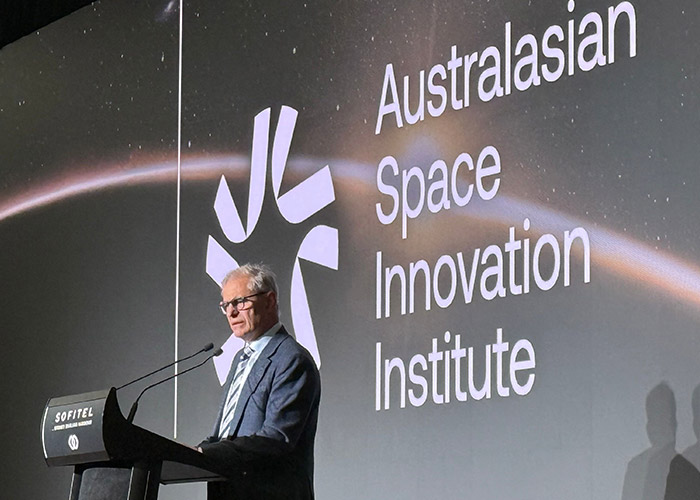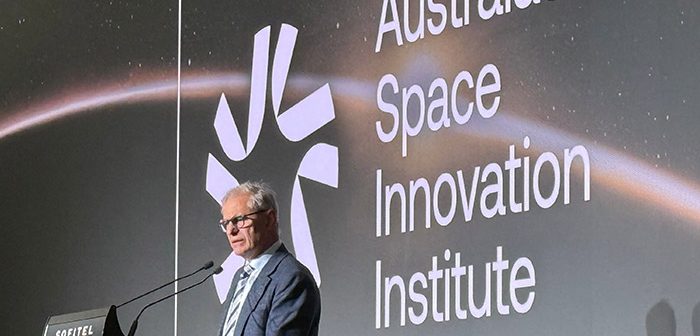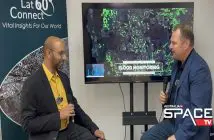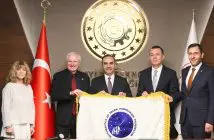
The new Australasian Space Innovation Institute (ASII), an independent, not-for-profit innovation engine to translate world-class research into space-enabled solutions for the economy, society and national security, was unveiled today at the 76th International Astronautical Congress (IAC) in Sydney.
Building on the success of the SmartSat Cooperative Research Centre (SmartSat CRC), ASII will act as a trusted, neutral connector with a commercial approach, linking end users with industry and universities to accelerate the path from research to impact. ASII will help grow sovereign capability while lifting productivity in sectors such as agriculture, resources, defence, disaster resilience and environmental stewardship.
With the intention of serving as Australias premier engine for transforming space research, the ASII will build on the principles of the SmartSat CRC by developing critical sovereign space capabilities and unlocking commercial innovation through space-for-earth applications.
With a rapidly expanding global space economy and Australia targeting a tripling of its domestic sector by 2030, ASII is designed to scale mission-driven collaboration, rapid prototyping and faster commercialisation of Australian Intellectual Property.
The ASII will operate as the trusted neutral partner with a commercial mindset, connecting end-users with industry and universities to accelerate and scale the translation of research into impact, while increasing the regions space capability and contributing to Defence, national security and government priorities.
The ASII will harness existing space technologies to support national priorities and challenges, including food security, environmental protection and disaster response. The organisation will also develop new space technologies to help Australia build its credentials as a high-tech nation, in areas such as satellite communications, earth observation technologies and AI-enabled autonomous satellite systems.
With space-based assets being critical enablers of military operations, ASIIs commercial agility, rapid prototyping and fail-fast innovation cycles will also provide benefits to Defence and national security, helping to ensure the ADF maintains an asymmetric advantage over potential adversaries.
ASII will focus on programs that deliver measurable outcomes for end users while strengthening regional collaboration, examples include:
- Australian Agriculture National Digital Twin: A pre-competitive, AI-enabled virtual model of Australias agricultural landscape, this Digital Twin project integrates satellite, drone, sensor, and climate data to drive productivity, sustainability, and resilience. This national infrastructure will help transform research, decision-making, and scenario modelling across the agricultural sector.
- Regional Space-Based Surveillance: The Takahē Project: The Takahē project is advancing sovereign maritime domain awareness with a formation-flying SAR satellite system, reducing reliance on foreign systems, strengthening regional leadership, and enhancing responses to illegal fishing, natural disasters, and grey-zone threats in the Indo-Pacific.
- Digital Infrastructure for Disaster Management: This program will establish a globally connected digital infrastructure, powered by satellite, AI, and advanced communications technologies, that strengthens emergency management and disaster resilience through real-time monitoring, predictive early warning, coordinated response, and informed recovery planning.
- Space-Enabled Digital Innovation for Regional and Remote Community Resilience: This flagship program will apply space-enabled technologies to strengthen resilience, sustainability, and wellbeing across Australias regional and remote communities. By integrating advanced satellite communications, Earth observation, GNSS, and IoT systems into practical solutions that support community priorities.
“ASII is about making space matter for people on the ground,” said Professor Andy Koronios (pictured), CEO and Managing Director of the Australasian Space Innovation Institute.
“We will deploy and develop satellites, advanced communications and AI-enabled Earth observation to strengthen Australia’s digital infrastructure—transforming agriculture, mining, defence, climate resilience and community safety. Our mission is practical impact, sovereign capability and the public good.”
The Australasian Space Innovation Institute will officially commence operations in January 2026.





